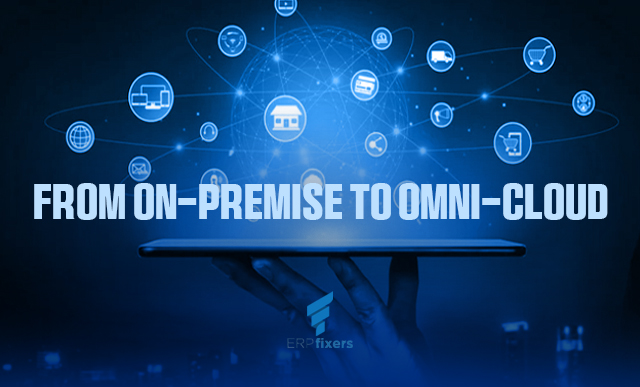Imagine that you run a small company with three back-end systems and a collection of custom programs that do not integrate with other business applications, allow visibility across the organization in the moment, or provide for efficient processes, reporting, and, consequently, decision making. Now, imagine that every penny you save in efficiency can literally save lives.
Edesia Nutrition, a nonprofit founded in 2009, is committed to treating and preventing childhood malnutrition globally with its ready-to-use food products. So far, the factory, which is based in Providence, Rhode Island, has sent millions of packets of food each year to help treat and prevent malnutrition for more than three million children in 46 countries throughout Africa, Southeast Asia, the Middle East, and Latin America.
“We manufacture fortified foods that don’t need to be mixed with water or be refrigerated, which are two things not available in the developing world or in a refugee camp,” says Navyn Salem, Founder and CEO of Edesia. “This revolutionized the treatment and delivery process, ultimately giving us the ability to reach more children, especially in these hard-to-reach areas.”
The core mission of the nonprofit is to reach as many malnourished and vulnerable children as possible, many of whom are in crisis and emergency situations.
The Need for an Integrated System
Because Edesia’s food blends require strict quality control and its formulas need to be consistent and uniform, the raw ingredients and finished products are constantly inspected and tested. Production processes need to be exact, and business applications need to be efficient, specifically in the supply chain, and especially when considering the organization’s rapid growth.
“The growth over the last five years has been exponential,” says Maria Kasparian, Executive Director of Edesia. And this growth is expected to continue as Edesia plans to expand operations and move to a larger facility in 2016. The new factory will provide added infrastructure, such as an integrated warehouse and an innovation center, which will allow Edesia to research, develop, and test new formulas and products.
Since its inception, the business had been running three disparate back-end systems and using a custom solution to ensure quality control and assurance. While this landscape allowed for growth up to a certain point, the environment was not as scalable, efficient, or integrated as Edesia was looking for. It needed connected systems and linked data. With better systems integration and data visibility, Edesia management would have an easier time running manufacturing reports, making more accurate strategic decisions, and ensuring quality control and inventory. “Without real-time data and detailed monitoring of raw materials, all our processes were too labor-intensive and time-consuming,” says Brian Dugas, Senior IT Manager at Edesia. “It was clearly time to move to a more robust and flexible solution.”
An updated system would eliminate error-prone manual processes and improve the quality of production processes, helping Edesia fulfill its core mission of reaching more children in need. “Our goal was to simplify our systems and automate our business processes,” says Salem. “Specifically, we wanted real-time access to all the production, inventory, and financial data to manage our operations more efficiently and cost effectively.”
The budget that Edesia had to work with when looking for a comprehensive ERP solution was understandably modest, bearing in mind that it was a small nonprofit employing just over 70 people. During the evaluation phase, Edesia was able to enlist the help of MBA students who were working on a special assignment. The team collaborated to identify three potential software packages and, after extensive analysis, recommended SAP Business One as the best fit.
Helping Hands
Considering that small businesses, especially nonprofits, need to keep their overhead as low as possible, cost was certainly a concern for Edesia. So it was a big win for the organization when it learned that Softengine, an SAP gold partner, had nominated Edesia for a grant through SAP’s Corporate Social Responsibility program. This grant, which was targeted specifically for charitable organizations, was ultimately awarded to Edesia. The grant included an in-kind donation of SAP Business One as well as additional funding for customizations to the software that were proposed by Softengine, who Edesia brought in specifically for the partner’s expertise and for the quality of the industry-specific value it provided.
After an information-gathering period, including visits to the manufacturing facility, Softengine was able to identify the most pressing business process challenges involving production, billing, and inventory. It then set about customizing several components for food quality assurance and blending that would integrate with SAP Business One.
The new SAP system is helping Edesia to transform operations, stay connected, coordinate resources, and run simple. Quality control, inventory management, and cost management have significantly improved, as the integration enables the organization to test, approve, and easily trace the origins of each food blend’s raw materials back to its source ingredients and vendors. The real-time data on inventory valuation and costs of goods helps the business analyze and improve its overall efficiencies.
Employees can now review all open sales orders, monitor the progress of production orders, and view the status of open deliveries, helping to pinpoint exactly where and when products are in the supply chain. “SAP Business One has allowed us to be sure of the quality of what we are producing and of everything along the whole supply chain, which is helping us to run simple,” says Kasparian. “Before, finance, quality, production, and shipping were all separate; now they are connected.”
A Simple Solution for a Growing Nonprofit
According to Dugas, employees are thrilled to find that the new system is so intuitive and easy to use and that business processes are almost completely automated. “With SAP Business One, we have real-time access to all the data we need to help us reduce costs and trace our raw materials from start to finish,” he says. “Having total visibility into our entire production process is exactly what was needed for Edesia to remain nimble.”
With SAP Business One, Edesia can now better manage growth, significantly increase efficiencies, and, as a result, get closer to ending malnutrition worldwide. “We are ecstatic to have a system that can evolve with our growing needs and help us make more lifesaving foods to reach more children than ever before,” says Salem.










